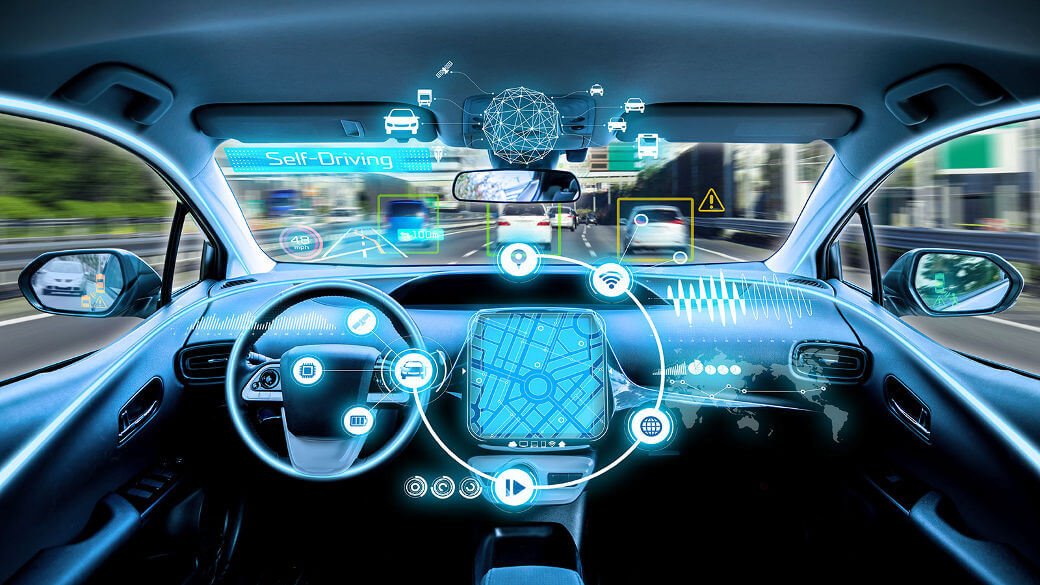The government has approved the use of self-driving cars on British motorways, as soon as the end of this year.
The government announcement of the move comes after the government last August said it was considering proposals that could allow the use of self-driving cars in the slow lane of UK motorways.
This is despite concerns about the safety of self-driving systems, that has resulted in a number of accidents and deaths over the years.

Government approval
Most recently a Tesla car crashed and burst into flames in Texas, killing two men.
The police said the car was driving itself at the time as no driver was found in the driver’s seat, but Tesla continues to reject that possibility.
Now this week the Department for Transport has announced motorists could see self-driving vehicles on British roads for the first time later this year, albeit limited to a very slow speed of 37mph (60km/h).
The Department set out the regulations for this to happen, starting with cars and vehicles having to be fitted with Automated Lane Keeping System (ALKS) technology, which the government feels “could legally be defined as self-driving, as long as they receive GB type approval and that there is no evidence to challenge the vehicle’s ability to self-drive.”
The DfT says that the technology could improve road safety by reducing human error, which contributes to over 85 percent of accidents. The driver will be able to hand control over to the vehicle, which will constantly monitor speed and keep a safe distance from other cars.
The government has now launched a consultation on The Highway Code rules to ensure the first wave of this technology is used safely and responsibly.
This consultation will end on 28 May 2021.
“This is a major step for the safe use of self-driving vehicles in the UK, making future journeys greener, easier and more reliable while also helping the nation to build back better,” said Transport Minister Rachel Maclean.
“But we must ensure that this exciting new tech is deployed safely, which is why we are consulting on what the rules to enable this should look like,” said Maclean. “In doing so, we can improve transport for all, securing the UK’s place as a global science superpower.”
End of congestion?
The government believes that self-driving technology in cars, buses and delivery vehicles could “spark the beginning of the end of urban congestion, with traffic lights and vehicles speaking to each other to keep traffic flowing, reducing emissions and improving air quality in our towns and cities.”
It also hopes that autonomous vehicle technology could create around 38,000 new jobs in a UK industry that could be worth £42 billion by 2035.
It said over 80 percent of these jobs are expected to be in professional, technical and skilled trade occupations.
It should be noted that the government has been keen on self-driving tech for a while now.
In 2016 for example it gave the green light to a trial of driverless HGV lorries on Britain’s roads.
Then in 2017 it pledged £8.1 million in funding for trials of a convoy of HGV lorries synching their moves in order to slash fuel costs and congestion, as well as lower emissions when transporting goods on British roads.
The idea is to get a ‘platoon’ (or convoy) of lorries on a motorway accelerating, braking and steering in sync via wireless technology.
The “platooning”trial itself will involve three heavy goods vehicles, all of who will travel in convoy on a motorway. The lead lorry will control the acceleration and braking of the two following lorries. And it should be noted that all lorries in the platoon will always have a driver ready to take control at any time.
The trial, if it successful, could have a number of benefits for businesses and motorists in the UK.
A row of lorries driving closer together would allow for the leading lorry to push air out of the way. This would of course improve the efficiency of the following lorries, providing fuel savings, lowering their emissions and thereby improving air quality.
In 2016 a report claimed that the introduction of driverless cars to Britain’s roads would lead to a major drop in accidents and provide a huge boost to the nation’s economy.
And computer modelling by the DfT has also predicted that driverless cars would cut delays and reduce journey times.




